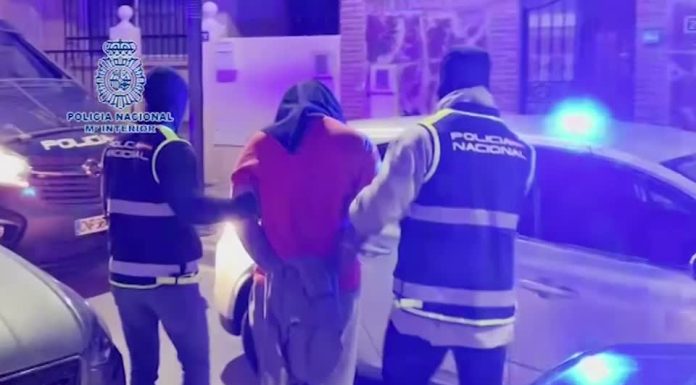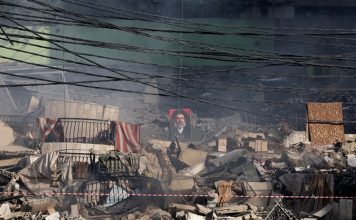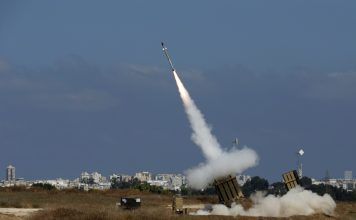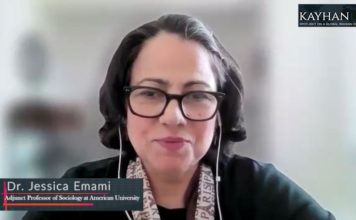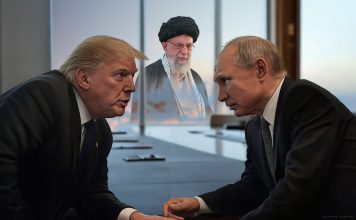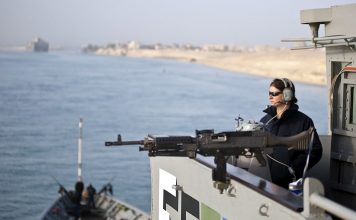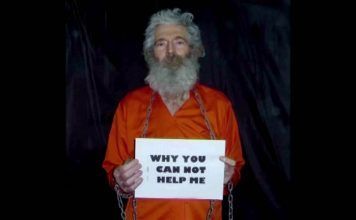By Ahmad Rafat
Spain has arrested three suspects — including two Spaniards and a British woman — in connection with the attempted assassination of Alejo Vidal Cuadras, the founder of Spain’s right-wing VOX party and a former European Parliament deputy.
The assassination attempt occurred on Nov. 9 in central Madrid, when an assailant wearing a motorcycle helmet shot Vidal Cuadras in the face using a 9-caliber revolver, and quickly fled the scene on a motorcycle driven by another individual, believed to be a woman.
[aesop_image img=”https://kayhanlife.com/wp-content/uploads/2023/11/2019-07-13T202924Z_1905107673_MT1SIPA0008VID0M_RTRMADP_3_SIPA-USA.jpg” panorama=”off” credit=”Alejo Vidal-Quadras. REUTERS./” align=”center” lightbox=”on” captionsrc=”custom” captionposition=”left” revealfx=”off” overlay_revealfx=”off”]
The Spanish police are currently searching for a fourth suspect, a Tunisian-born French national who is the subject of an international arrest warrant by French authorities. There is speculation that this individual may have fled to Tunisia via Algeria immediately after the assassination attempt, or that he may still be in Spain.
According to media reports, one of the arrested Spaniards apparently converted to Shiite Islam long ago, and is known to have associations with extremist Shiite factions as well as with the Islamic Republic. Spain’s national intelligence center, the Centro Nacional de Información (CNI), which focuses on jihadist terrorism, has taken over the investigation.
The Shiite Spaniard and his British wife were arrested in southern Spain in Lanjaron, the suburbs of Granada. The woman’s involvement in the crime is still unknown.
The third suspect is a 22-year-old Spanish construction worker who was arrested in connection with the incident. He was spotted at the scene of the crime and helped the assailant escape on his motorcycle. Later, the burned motorcycle was found and traced back to its owner, who lived in Fuengirola, a suburb of Malaga in southern Spain. It appears that he had given his bike to the terrorists in exchange for 500 euros.
All three suspects were taken to Madrid to be questioned by prosecutors.
The Muslim Spaniard was identified on CCTV by police. He was seen walking near the home of the targeted politician in the days leading up to the incident. According to the investigations carried out by the Spanish Anti-Terrorist Police and the General Prosecutor’s Office (La Audiencia Nacional), the Spaniard, who converted to Shiism five years ago, was the mastermind of the terrorist attack and had hired a French Tunisian hitman to assassinate the former deputy of European Parliament.
Sources within Spain’s General Prosecutor’s Office have indicated that the detained Spanish suspects are not believed to have acted alone. Investigators are searching for evidence to identify additional perpetrators. While not explicitly naming the Islamic Republic, the sources suggested that the regime may be involved, given past threats received by Cuadras from entities tied to the regime in Iran.
A member of Spain’s anti-terrorism police told the media that a tweet from the Iranian Embassy in Madrid following the shooting of Cuadras indicated the embassy’s prior knowledge of the crime.
Prior to the tweet, the shooting had initially been suspected to be connected to the legal activities of Vidal Cuadras. But the officer pointed out that an article criticizing Vidal Cuadras was published on Hispan TV, a Spanish-language television network associated with the Islamic Republic, six days before the attack. This could be seen as another clue of the regime’s potential involvement.
Vidal Cuadras, a former Vice President of the European Parliament and member of Partido Popular (PP), the Spanish People’s Party, returned home from the hospital on Thursday, having survived the assassination attempt. While still in the intensive care unit, he met with the judge from the Attorney General’s Office, Francisco de Jorge, to discuss the role of the Islamic Republic in the attack. Cuadras provided evidence and documents to the prosecution related to threats that he received from agents linked to the Iranian government. When asked why he had not made these documents public and filed a complaint, Vidal Cuadras said he had not believed that they would dare to attack a political official representing a country situated in the heart of Europe.
The sensitivity surrounding the case has led to the National Prosecutor’s Office declining to disclose the names of the detainees and details of the investigation. This sensitivity is reportedly related to what is referred to as the “Iranian circle” in Spain.
Vidal Cuadras has been a major supporter of the Mojahedin-e-Khalq organization since he was elected to the European Parliament representing the People’s Party of Spain in 1999, particularly during the years 2004 to 2007, when he served as its vice-president under the presidency of Josep Borrell. Since then, he has attended and spoken at many of the MEK’s meetings. Cuadras gave a speech at a meeting of the Mojahedin-e-Khalq organization in Brussels in September.
His involvement with the organization has come under scrutiny after his name appeared on a list published by the Ministry of Foreign Affairs of the Islamic Republic in January 2022, along with other members of the European Parliament accused of supporting the MEK, a “terrorist group” plotting against the regime in Iran.
In 2019, the right-wing VOX party was investigated by the Spanish tax authorities for receiving financial aid from the Mojahedin-e Khalq. The Spanish Senate also launched an investigation into the matter following a request by the People’s Party.
During the 2014 European Parliament elections, VOX received approximately 800,000 Euros from the Mojahedin-e Khalq, a sum that exceeded the maximum individual donation limit for political organizations in Spain. This was made possible through the contributions of 146 members and supporters of the Mojahedin-e Khalq organization in 15 countries, including Germany, Italy, Switzerland, Canada, and the United States. The Mojahedin’s financial aid accounted for 80 percent of VOX’s total budget for the election, according to the Spanish daily El Pais.
Despite this financial support, VOX only received 1.56 percent of the votes in that election and failed to send a single representative to the European Parliament.

